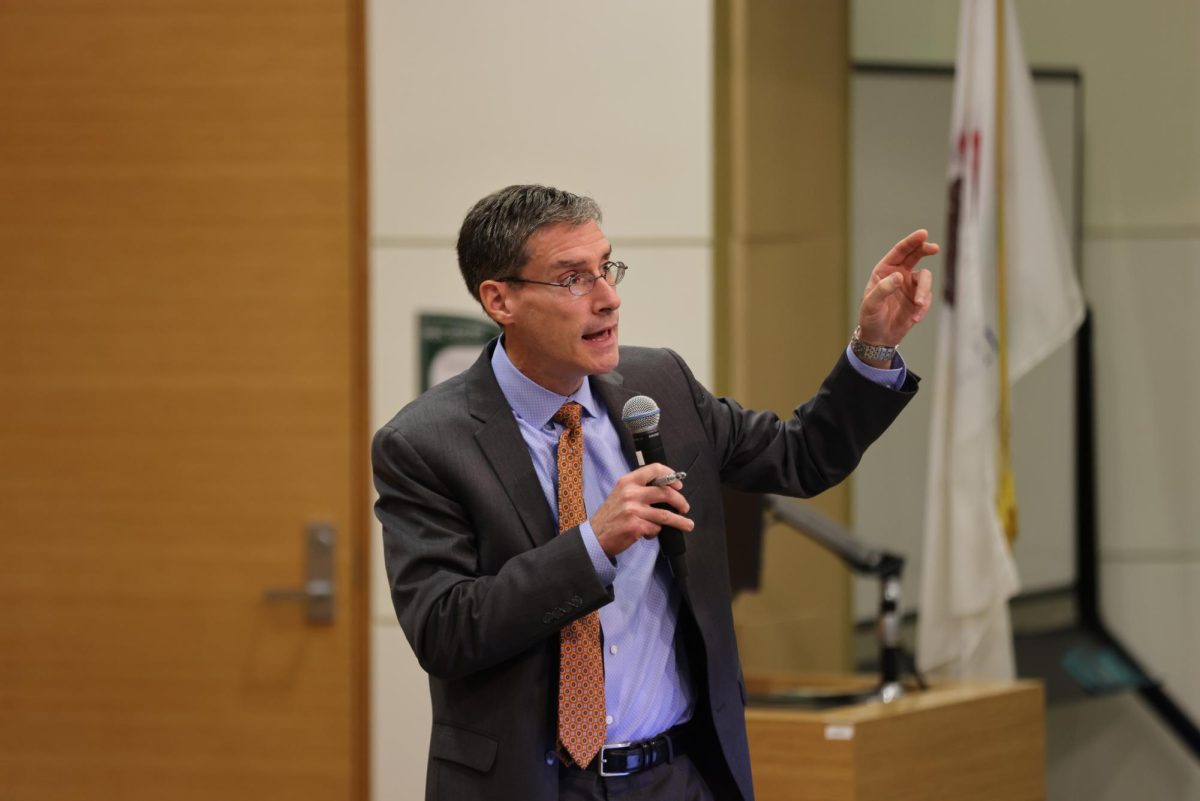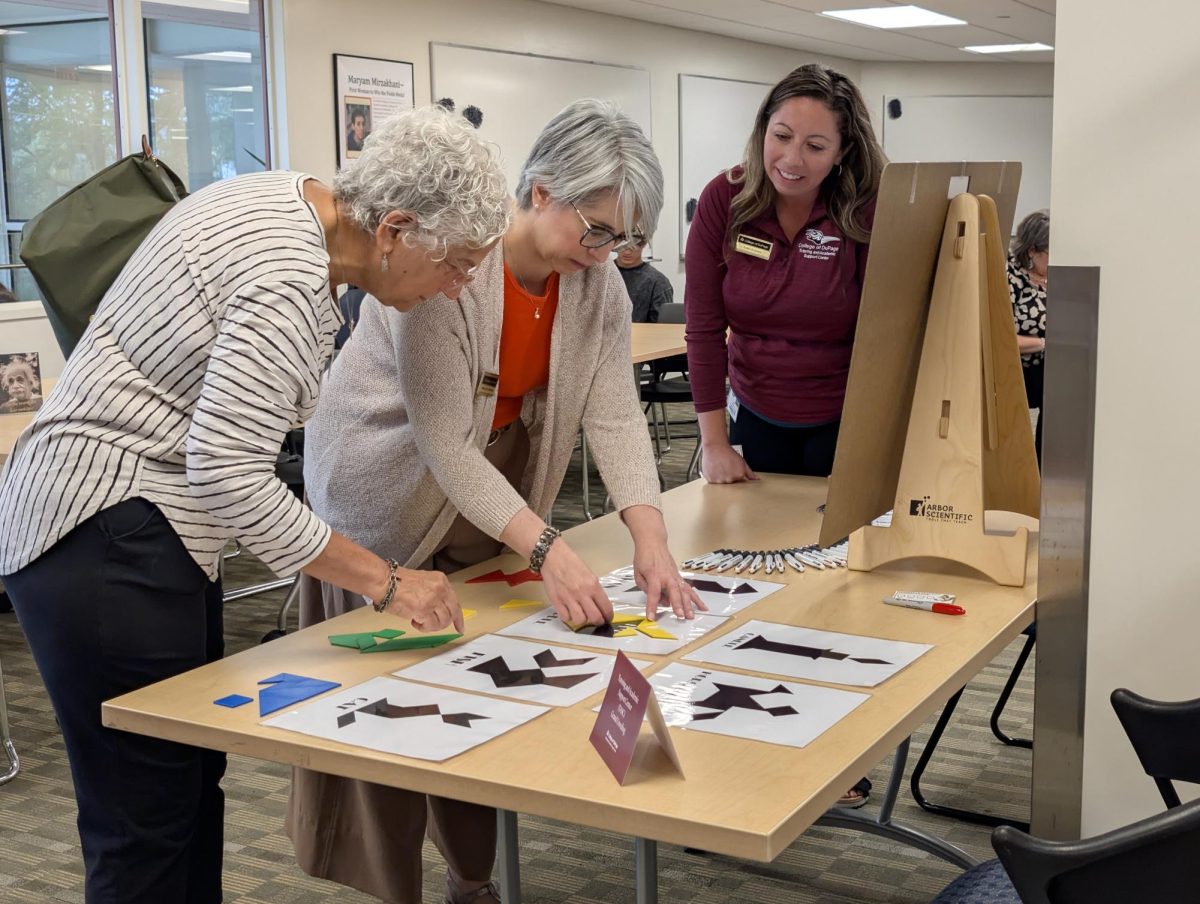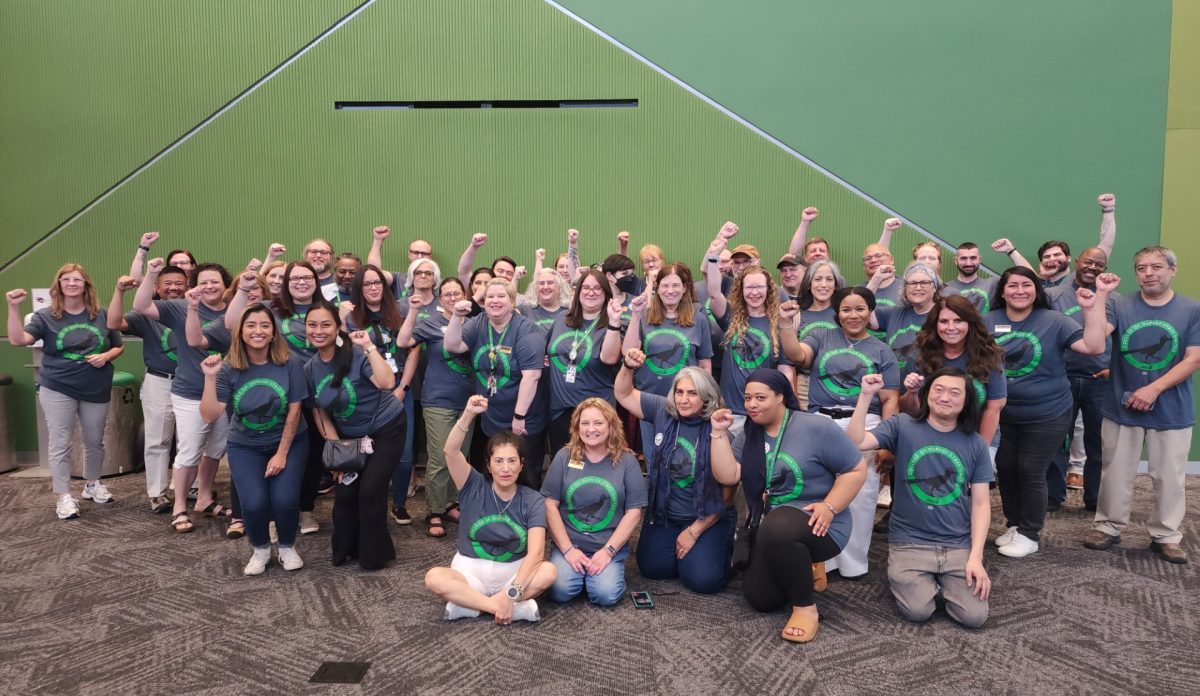Editor’s note: This story makes use of anonymous sources. The names Sarah and Emily take place of two COD classified staff members who requested to be anonymous in case of career repercussions. Both the staff writer and the Courier’s Editor-in-Chief know the identities of the sources.
Around 600 classified staff members at the College of DuPage are trying to unionize, seeking better financial compensation and improved career advancement, into a new organization known as College of DuPage Staff United (CODSU). Classified staff are individuals who work alongside students but aren’t necessarily teaching in the classroom. This includes staff who work in student support, such as roles within Access/Accommodations and IT.
The Courier met with two classified staff members, Emily and Sarah, who are also CODSU members. They told us that a poorly mismanaged compensation study served as the impetus for unionization. Done by an external company called CBIZ, both sources felt that the study was done hastily on incomplete data. The cost of the study was significant, as the COD Board of Trustees had approved a $279,750 contract at the January 2024 meeting (item 9.g).
“Regarding those PDQ’s, position description questionnaires, those did take hours. That’s where we literally had to say the percentage of each kind of thing we did and how much time that took of our job, those weren’t looked at. So, the entire study was done on our job titles, and we weren’t allowed to update those descriptions or titles to commensurate with what we do,” said Sarah.
The study sorted classified staff into ‘career levels’ based on their roles, and these roles have an attached salary range. Both sources said these results are neither reflective of market value nor the actual roles of classified staff.
“I have over 20 years [of experience] and I have a higher degree, I have a master’s degree, and then with this compensation study, they said that, ‘Oh, anybody with a high school diploma can do what you do.’ First of all, the pay. Second of all, your education and experience. That was the sucker punch that woke all of us in the classified staff up,” said Emily.
Sarah echoed similar concerns about wages and lack of skill recognition.
“Let’s not forget that this is the richest county in Illinois, yet a lot of our classified cannot afford to live in DuPage County that we serve and adjuncts as well,” said Sarah. “We’ve never gotten raises. We get a cost-of-living adjustment, they call it a COLA, based on some rule that does not exist anywhere that it can’t be above 3%. A few years ago, inflation was 8%. So, we are all effectively making less than we were a few years ago. Meanwhile, administrators will give themselves raises in the middle of the year.”
Examinations of compensation data given to the Board of Trustees show a significant increase in administrators’ pay. A comparison between projected administrative pay and actual administrative pay for FY2025 shows that administrative staff were paid $1.1 million dollars more in raises and/or bonuses. At the same time, within the last five years, the number of administrative staff has increased while the number of classified staff has decreased.
The union also states that there is severe internal inequity, noting that it is very difficult to ‘move up’ to higher roles or get compensated for new skills or more difficult tasks.
“Another issue that’s been a longstanding thing here is that people internally will try to move up, but they won’t pay a living wage. For a long time, there was a salary cap that even if you are doing a much higher-level role, they would only give you a few percentages increase. The other thing being the lack of equity with external candidates. An external candidate would come in for much higher with no institutional experience than what they would hire internally for the same role,” said Sarah.
They also said that classified staff play a much-needed role in keeping students in classes and supporting their academic success. Rather, both Emily and Sarah feel they are not recognized for the importance of their work and are never consulted about how to implement change.
“Just dealing with the student in itself, it’s a lot of work before they get to the faculty side of it. Every student, depending on where they are coming from, has a story. If they are lower income or have issues with food insecurity or housing insecurity, we have to deal with that first because we want to make sure that the student has what they need to survive even before thinking about classes. And those are a lot of things that the administration doesn’t think about. They don’t understand what goes into filling those seats,” said Emily.
Sarah also highlighted the need for more classified staff as well, noting an average decrease in the amount of positions post-COVID.
“We are understaffed, and our students have never needed more support than they do today,” said Sarah. “When classified staff are demoralized and underpaid, service quality suffers.”
The new union is partnering with the American Federation of State, County, and Municipal Employees (AFSCME), a national labor organization representing 1.3 million public employees. The Courier reached out to Anders Lindall, AFSCME 31’s public affairs director, who redirected us to AFSCME’s press release as well as a petition form.
Unionizing at COD is not new. Full-time faculty are represented by CODFA, and adjunct faculty through CODAA. In recent years, CODFA has mobilized in hopes of encouraging COD to put more resources into student mental health and compensation. Because of a recent reduction in counseling staff, faculty staff are saying they are now filling those roles, positions that they do not believe they have proper training or support for. CODFA president and Political Science Professor David Goldberg voiced his support for both CODSU and CODAA unions at the April meeting.
“I urge the administration to show respect and to respect all stakeholders and the work that they do, both classified and adjunct, without whom the work that the rest of us do would not even be remotely possible,” said Goldberg. “Being in a union doesn’t guarantee you’re going to win every issue or get what you want, but as many of my colleagues have mentioned, there are demonstrable improvements to your working conditions and the institution as a whole.”
Community Engagement Director Jennifer Duda responded to The Courier on behalf of the college administration.
“At College of DuPage, we believe in the power of the institution’s mission to educate, enrich and empower our communities for success. Our priority is to continue open communication and a positive working relationship with all employees, and we respect the right of classified staff to explore unionization.”









